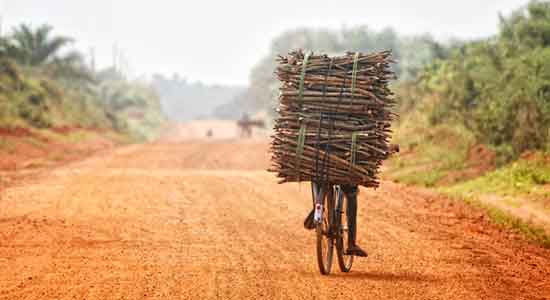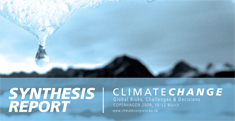 Climate change
Climate change
Climate change is one of University of Copenhagen's core research areas in relation to developing countries.
The research area covers
- Climate change and associated ecosystem changes
- Vulnerability and adaptation of land utilization
- Mitigation potential from land use changes
- Adaptation of livelihood strategies, disaster preparedness and management
- Changes of biodiversity
Relevant centres and departments
Sustainability Science Centre
The vision for the Sustainability Science Centre at the University of Copenhagen is to provide an easy access to all of the University's competences in sustainability. The centre brings together the strong disciplinary traditions of several faculties in order to address the key problems of sustainable development and globalization in a highly integrative manner. Thereby aiming to make the University of Copenhagen a leading actor in this particular field, both in terms of research and in post-graduate education.
Department of Geoscience and Natural Resource Management
The Department of Geosciences and Natural Resource Management is a new department at Faculty of Science, which is a merge of the former Forest and Landscape and the Department of Geography and Geology.The research creates new fundamental and applied knowledge within the fields of geology, geography and geoinformatics, forest, landscape and biomass, parks and urban landscapes as well as urban and landscape studies. The department covers among others a research group in Environment and Society in Developing Countries.
Department of Plant and Environmental Sciences
The world faces huge challenges. The demand for food, feed and biomass for energy, fibres and chemicals will rise dramatically in the coming years because of increased population growth, climate change and scarce resources. The Department’s research and teaching focus on plants, microorganisms, animals, biotechnology and the environment as basis for sustainable production of the food of the future and other biological products. The Department has established advanced technological platforms for bio-imaging, metabolomics, analytical chemistry and phenomics.
Relevant research units
Research group on Environment and Society in Developing Countries
The research group on Environment and Society in Developing Countries at the Department of Geoscience and Natural Resource Management (former the Department of Geography and Geology) aims to contribute to understanding globalization processes and human dimensions of global change in developing countries. Research focuses on earth observation, the complexity of land use and land cover change, natural resource management and societal processes.
Research Platform on Environment and Change
The research platform on Environment and Change is one of the three thematically distinct yet interconnected research platforms at the Center of African Studies. The research platform attempts to capture the combined environmental and developmental issues related to Africa and their implications for Africans in diverse settings. The approach is interdisciplinary combining insights from natural and social sciences. Particular attention is given to the discursive and material practices through which the terms of environmental governance authority is legitimated as well as contested.
Researcher group in Nature and Environmental Changes
Nature and Environmental Changes is one of the research areas at the Department of Anthropology. In the 21st century a pronounced new interest in nature has emerged, because climate change has become a significant item on the global agenda and because many of the societies that anthropologists work in are already affected by new challenges from environmental changes of varying scale. It is considered impossible to think ’society’ without at the same time taking its natural surroundings and resources into account. Anthropology makes a significant contribution to showing how social and natural history are deeply infiltrated with each other.
Physics of Ice, Climate and Earth
The section Physics of Ice, Climate and Earth at the Niels Bohr Institute studies the elements of the Earth system – the atmosphere, oceans, ice sheets and glaciers, sea ice, and the solid Earth itself – and the interactions between them. We have a world-leading role in the drilling of ice cores from the Greenland and Antarctic ice sheets, we analyze the ice samples in our laboratories, and interpret the data together with results from computer models of all parts of the climate system, including general circulation models and models of ice flow. We also work with theoretical aspects of meteorology, oceanography and complex system dynamics to understand both gradual and abrupt climatic changes of the past, present, and future. We study the physics of the solid Earth with seismic data, gravity and magnetic observations from satellites, inverse method theory and numerical modelling.
CCAFS
Project examples
Synthesis Report

Download the University of Copenhagen Synthesis Report from the the international scientific congress in 2009 entitled "Climate Change: Global Risks, Challenges & Decisions"

